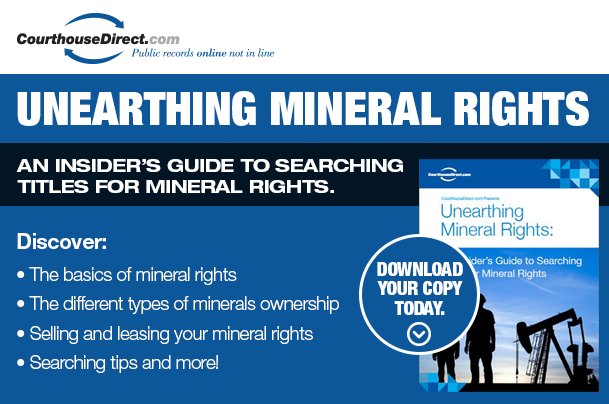 Hydrocarbon resources like oil, coal and natural gas underlie large swathes of the continental United States. Some of these reserves are locked up in conventional "basin" formations that are relatively easy to tap and exploit. Other blocks of hydrocarbon reserves are encased in broad shale formations. Thanks to rapid advancements in exploration and drilling technologies, including the recent fracking boom, both types of resources can be extracted from the ground in an economical fashion.
Hydrocarbon resources like oil, coal and natural gas underlie large swathes of the continental United States. Some of these reserves are locked up in conventional "basin" formations that are relatively easy to tap and exploit. Other blocks of hydrocarbon reserves are encased in broad shale formations. Thanks to rapid advancements in exploration and drilling technologies, including the recent fracking boom, both types of resources can be extracted from the ground in an economical fashion.
However, landowners who wish to profit from the extraction and sale of the resources that lie under their land must ensure that they have the legal right to do so. Petroleum land titles are a crucial part of this process.
What Is a Petroleum Land Title?
Broadly speaking, petroleum land titles confer the right to exploit and develop the mineral resources on a given piece of property. Landowners who enjoy fee simple ownership over their land have the implicit right to do what they wish with the mineral resources underneath their property. On the other hand, an individual who purchases a parcel of land after the sale or lease of its mineral rights may not have this right. The sale or lease of mineral rights to an entity that's capable of exploiting mineral resources results in the separation of a petroleum land title from the fee simple deed to which it was originally attached.
When Are Petroleum Land Titles Used?
The "value" of a petroleum land title lies in the potential for profitable resource development that it confers. Landowners who wish to profit from the resources contained under their land without starting a capital-intensive exploration company often sign leases for the mineral rights to their land. Typically, these leases provide landowners with 20 percent of the profit produced by their mineral resources.
However, using such leases to transfer mineral rights between landowners and extraction companies isn't a simple process. Extraction companies typically do not purchase title insurance to secure the interests that land leases provide. Accordingly, they must use a thorough process of title examination to guarantee that lease-granting landowners have unimpeachable claims to the land that they offer for exploitation.
Marketable Title
In many states, title examinations must meet a standard known as "marketable title" in order to pass legal muster. Savvy mineral exploration and extraction companies rarely deal with landowners whose titles don't meet this standard. Accordingly, it's in the best interest of landowners whose properties contain significant mineral resources to take preemptive action to ensure that their land titles meet this standard.
Common Criteria for Marketable Petroleum Land Titles
Although the exact criteria by which a title will be judged to be marketable may vary between jurisdictions, it's possible to generalize about the process. Upon review by a qualified lawyer or legal actor, petroleum land titles that suffer from any of the following problems probably won't be accepted as marketable:
- It's encumbered in any way. Examples of encumbrances include past-due taxes, existing legal judgments or injunctions, and pre-existing oil, gas or mineral leases.
- It's subject to a current or potential legal challenge from a previous or rival landowner.
- There are broken "links" in the chain of previous ownership.
- The title’s validity rests on a dubious legal foundation.
Other Standards
Since petroleum land titles do not normally have title insurance and may be temporary in nature, lease-holders may make exceptions to the marketable title standard. In the event that a given parcel of land offers an acceptable risk-reward balance, they may choose to complete the process of obtaining a lease in spite of lingering misgivings about the current owner's claim to the land. This is generally known as the "acceptable business risk" standard. In particular, landowners who own particularly large amounts of land or hold claim to particularly rich mineral deposits may benefit from this somewhat relaxed standard.
* Image courtesy of FreeDigitalPhotos.net





















